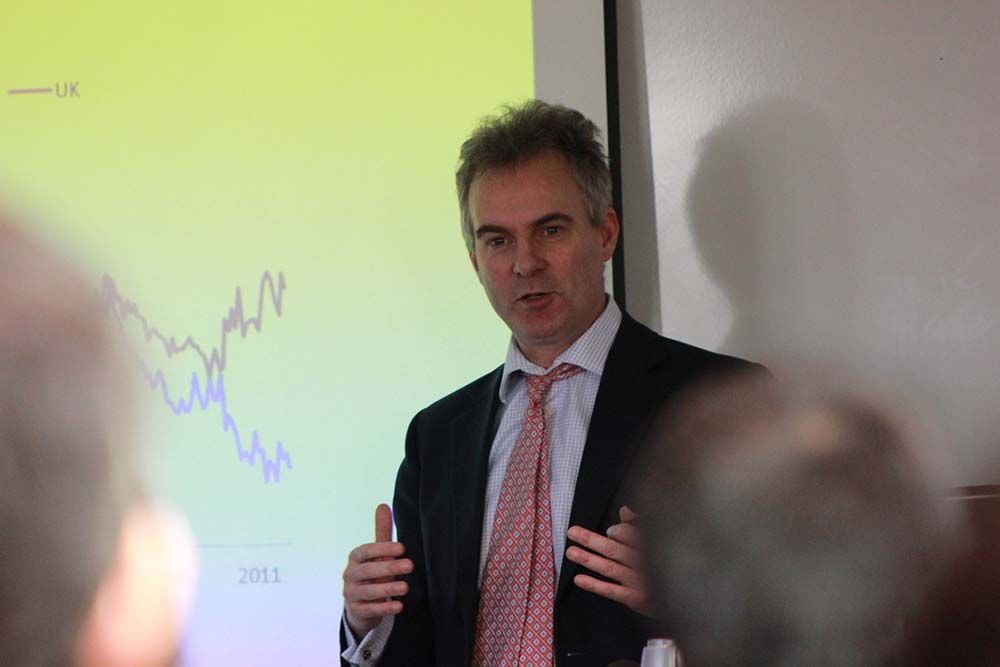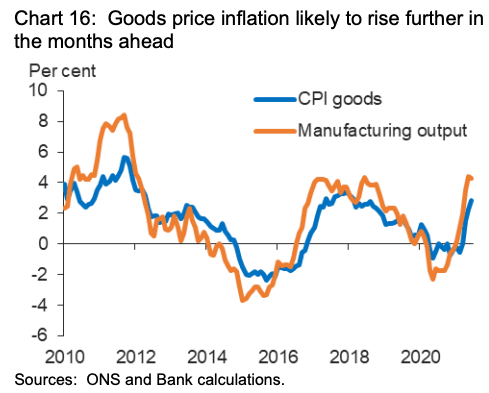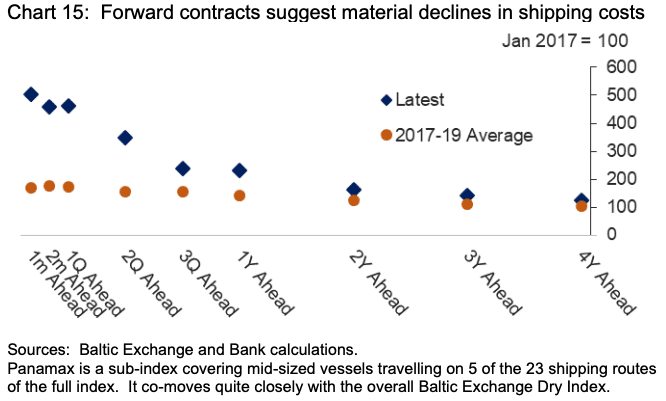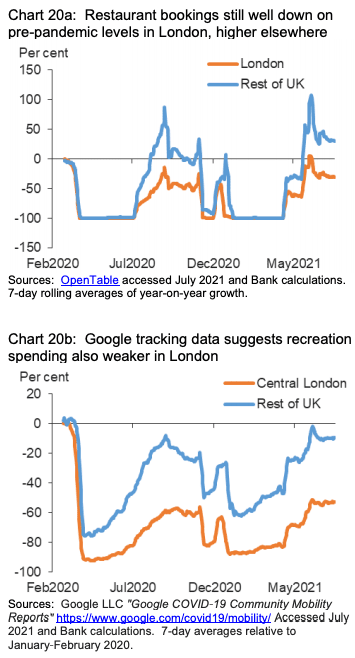Broadbent Warns of "Significant" Inflation, But is Coy on Need for Interest Rate Rises
- Written by: Gary Howes
We have Saunders and Ramsden being on the 'hawkish' side of the MPC while Mann and Haskel sit on the Dovish side. Broadbent sits in the middle.

Above: File image of Ben Broadbent. Image © Bank of England
The Bank of England is again in focus today with investors digesting a speech by Monetary Policy Committee (MPC) member Ben Broadbent.
Broadbent is the Deputy Governor of Monetary Policy and therefore carries some influence on the MPC, but unfortunately for those wanting some market reaction his stance was unhelpful.
He has positioned himself firmly in the wait-and-see camp, saying he wants to see more data before signalling an interest rate rise.
Central banks are firmly in the spotlight given the sharp rise inflation across the globe. The rising prices come as they sit on ultra-loose monetary settings, fuelling fears they might in fact risk fuelling uncomfortably high levels of inflation.
Broadbent confirmed the Bank's existing projections - for inflation to peak at 3% - are now way off the mark.
"The MPC expects inflation to rise significantly further, to well over 3%, over the next six months," said Broadbent in a speech.
He acknowledged that the rise in inflation is "a bit surprising".
But, is this enough to warrant a shift in the Bank's current stance on interest rates and quantitative easing?
Like his colleagues at the Bank, and indeed every other economist and commentator out there, Broadbent acknowledges that "base effects" are a prime driver of the current spike in inflation.
This is simply whereby today's inflation data is flattered by the sharp decline recorded one year prior, leaving the year-on-year rate looking potentially unduly high.
He also notes that a bottleneck in supply in the global manufacturing supply chain as well as high commodity prices are pushing up inflation.
He agrees with those economists out there who say this will be temporary and therefore should not warrant higher central bank interest rates.
With this in mind, Broadbent's speech focussed on his desire to understand what might prove to be a more persistent sources of inflation; from a currency market perspective this is important as it is this inflation that would prompt the Bank into bringing forward a rate rise.
Markets are currently favouring the currencies of those central banks that move to raise rates ahead of their peers, therefore a 2022 rate rise is seen by currency strategists to be on balance supportive of the Pound.
If Broadbent sees persistent inflation ahead - as his colleagues Dave Ramsden and Michael Saunders alluded to in recent speeches - it would signal the Bank is leaning towards a realisation that interest rates might be required to rise at some point in the first half of 2022.
Broadbent notes a mismatch in the supply and demand for labour across the UK during the reopening process has helped put near-term pressure on wages, an important driver of inflation that the Bank cannot simply ignore.
"The behaviour of labour costs will for me be important in judging the appropriate stance for monetary policy. This won’t be straightforward," said Broadbent.
He argues that the wage market will settle in some industries, but in others a more permanent shift might be underway.
He cites in particular the likelihood that home working will continue.
"In January, I felt that these mismatches would probably get ironed out over time," says Broadbent, but he notes now that, "some shifts in demand may stick (if significant numbers of people continue to work from home, for example). Some re-allocations of supply may be harder than others."
Broadbent says wage-driven inflation should ultimately prove temporary, but his studies and emerging data do now pose a level of uncertainty.
And this uncertainty does not just apply to wages but also to supply dynamics.
Like other economists Broadbent notes global supply chain factors are pushing up the price of goods, not just in the UK but across the world.
"Even if the heat comes out of some of the final demand for goods, there’d probably be pressure on suppliers for a while afterwards, if inventories need to be restored," says Broadbent.
"With vaccination rates in much of Asia lagging those in the rest of the developed world there are still risks to global supply chains from potential outbreaks of the virus," he adds.
But Broadbent offered no clear assessment of what the current environment offers for the future of monetary policy.
He notes that on one hand much of the causes of higher inflation will have passed in 18-24 months, the timeframe relevant for monetary policy decisions.
But given questions over the structural shifts underway in the labour market he puts himself firmly in the wait-and-see camp:
"Of more relevance, I think, is what’s happening in the domestic economy. As ever, and despite my concentration today on all the texture under the macro-economic surface, the outlook for aggregate demand growth still matters. And for all the usual reasons and more, the Committee will have to pay very close attention, parsing the official data as best it can, to the numbers in the labour market."
In summary, we have Saunders and Ramsden being on the 'hawkish' side of the MPC while Mann and Haskel sit on the Dovish side. Broadbent sits in the middle.






